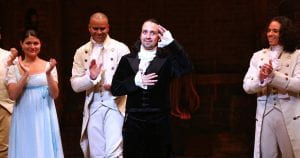By: Keval Bollavaram
Reading through the genius.com annotations of Alexander Hamiltonand researching founding fathers for my historical annotation project, I am surprised at how young some of the founding fathers were when the Declaration of Independence was signed. Hamilton himself was only 21 years old, and Aaron Burr was 20. This has led me to ponder whether the percentage of young ambitious minds who “take their shot” early on in their lives has diminished over the last few centuries. After comparing the accomplishments of Alexander Hamilton and other founding fathers when they were young to the early achievements of highly successful and influential people today, I believe that many successful people today still had much talent and ambition in their youth.
However, it is important to realize that the problems faced by the founding fathers are drastically different than those encountered by the leaders of today. Take, for example, Elon Musk—the founder of SpaceX, Tesla Motors, and many other innovative organizations—at just 28 years of age he became a founding member in PayPal, which is now one of the biggest online payment services in the world. Like Hamilton, Musk had fierce competition from his peers who he did not always see eye to eye with. Musk had to overcome being ousted as CEO due to his desire to switch from the Unix platform to Microsoft. He would go on to create the aforementioned companies.
Another innovator who started young, Jeff Bezos, Founder and CEO of Amazon, started Amazon as an online book rental service. During the early days of his company, he would deliver books himself. Similarly to Hamilton, Bezos did not have strong familial support when he was young. He had a teen mother who divorced his biological father before giving Jeff up for adoption. Below is a video of Jeff Bezos during the early days of Amazon.
While the leaders of today did not have to fight for independence, they did have to overcome major hurdles in order to establish their vision and impart it on the world.


